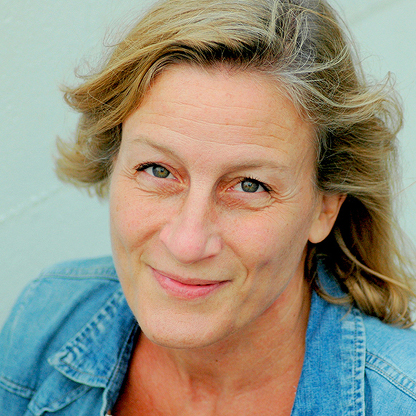09.08.2016 News
Textiles Microorganisms Biotechnology/Systems biology
Dirt and water blockers from fungi proteins
Waterproof items are popular with the young and old. However, the waterproof layer made from chemicals is does not degrade well.
09.08.2016 News
Textiles Microorganisms Biotechnology/Systems biology
Waterproof items are popular with the young and old. However, the waterproof layer made from chemicals is does not degrade well.
17.08.2016 News
Consumables Waste Energy technologies
Garden plant remains will soon be used to barbeque – even in German gardens.
23.08.2016 News
Consumables Plants Agriculture sciences
Algae have many talents. They are not only important ingredients for the pharmaceutical and cosmetic industry; it has now been proven that the tiny green microorganisms can also be used as a suitable alternative source for the aviation fuel kerosene.
26.08.2016 News
unspecific Plants unspecific
The oil spill in the Gulf of Mexico in 2010, is one of the worst environmental disasters of recent year. After the explosion at the BP operated drilling rig Deepwater Horizon, an estimated 800 million litres of crude oil spilled into the sea.

Researcher Profile
Pharmaceutical industry Microorganisms Chemistry
The microbiologist Ulrich Rabausch is a scientist who now wants turn his dream of entrepreneurship into reality, aided by a millions-strong grant from the German Research Ministry’s GO-Bio competition.
07.12.2015 News
Consumables Plants Agriculture sciences
Healthy nutrients are found in many fruits and vegetables, but vast quantities must be consumed to achieve an efficient dose of the natural compounds because they are often low-concentrated in plants.
18.12.2015 News
unspecific Microorganisms Biotechnology/Systems biology
Algae are a rich source of valuable substances, which are prized in both the pharma and cosmetic industries. But there’s a lot more than meets the eye with the microscopic organism: their supporting skeletal structure is made from a substance called alginate.

Researcher Profile
Chemistry Animals Biotechnology/Systems biology
Even as a child, Nicole Dubilier was fascinated by the sea. Today, she counts among the world's leading microbiologists.

Researcher Profile
Pharmaceutical industry Plants Biotechnology/Systems biology
Jörg Riesmeier already worked as biochemical scientist as a well as a fund manager. In his recent years, he helped putting the industrial biotechnology-specialised company Direvo on a new course.
09.12.2014 Success story
Automobile Plants Agriculture sciences
Components from the sap of the caper spurge plant could be an ingredient in future biofuels. And because the plant grows well in poor soils, there would be no competition with food crops.
30.10.2014 Success story
Consumables Microorganisms Biotechnology/Systems biology
In many industries, enzymes are the secret star of the show. For example, the tiny biocatalysts are a key component of modern detergents. Now, the Monheim-based biotech company Evocatal is coordinating the ‘Functionalisation of Polymers (FuPol)’ strategic alliance to further unlock the potential of enzymes.
08.12.2016 News
Consumables unspecific Biotechnology/Systems biology
EU consumers have minor knowledge on bioplastics but unrealistically high expectations that can not be fulfilled, researchers said at 11th European Bioplastics Conference in Berlin.
02.02.2016 News
Energy Waste Biotechnology/Systems biology
Lithium-ion batteries are the energy source for many electronic devices. But the alkaline material is expensive and its extraction is damaging to the environment. A much more environment friendly and cost effective alternative, however, are sodium-ion batteries.
05.02.2016 News
unspecific unspecific Chemistry
Hessen-based company Brain AG has almost made the jump from technology startup to listed company, in spite of recent turbulence on the stock market.
12.02.2016 News
unspecific Plants Agriculture sciences
The residents of these high-rise buildings are not your usual inner city residents – tomatoes grow on the fifth floor, herbs and cucumbers on the third. This is how engineers from the German Center for Aerospace (DLR) in Bremen imagine agriculture of the future.
18.02.2016 News
Chemistry Plants Biotechnology/Systems biology
Chicory is popular as a lettuce for its slightly bitter taste and can be eaten raw, baked, roasted or stuffed. Favoured for its yellowish-white creamy head of leaves, chicory is grown underground in the absence of sunlight to prevent the leaves turning green or opening up, with only the tips of the leaves showing above the surface.
25.02.2016 News
unspecific Plants Biotechnology/Systems biology
Since the discovery of the gene editing technique CRISPR/CAS9, the celebrated genetic “scissors” have become a staple of the genome editing toolbox, along with other methods such as TALENS and ZFNs.
05.01.2016 News
unspecific Plants Agriculture sciences
Phosphate is not just a vital element for humans, in addition to nitrogen, the mineral is one of the most important plant nutrients. Since Germany does not have its own natural resources, the raw material has to be imported in large quantities from abroad where it is extracted from mines.
07.01.2016 News
unspecific unspecific unspecific
The Hessen town of Zwingenberg has been one of the main locations of German industrial biotechnology. Originally a technology start-up, today Brain AG has grown into a corporation of six companies with 240 employees.
15.01.2016 News
Food Plants Agriculture sciences
After rice, wheat and maize are the most important food crops worldwide. But climate change threatens the harvest and consequently the global food production for a growing world population.